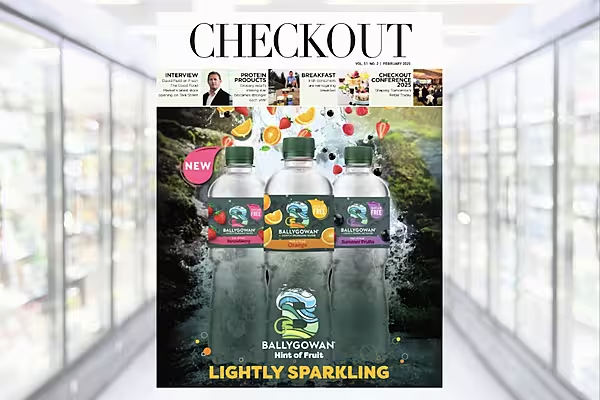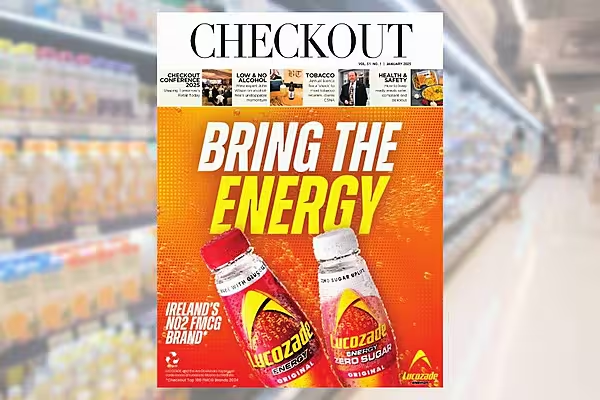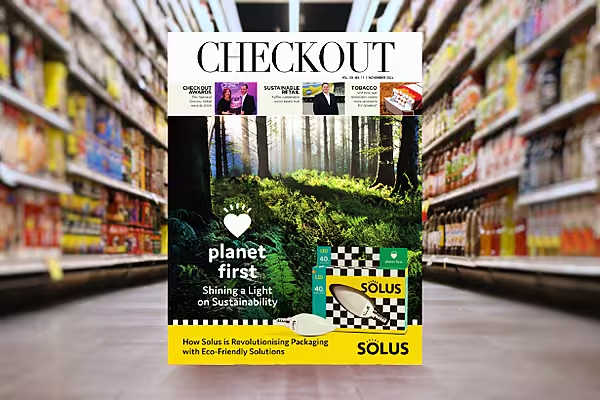Having first joined Mars in 1988, Fiona Dawson has risen through the ranks to not only hold the enviable title of 'President, Mars Chocolate UK', but also the next President of the IGD, succeeding Charles Wilson in January. Ahead of her keynote address at the Checkout Conference, in association with Rabobank, in February, Stephen Wynne-Jones asked her to discuss the challenges facing big brands in the competitive retail landscape.
There are few business leaders more capable of addressing the subject of 'Brands at the Crossroads' - the theme of next year's Checkout Conference - than Fiona Dawson, President of Mars Chocolate UK, and one of the most respected top level executives in the British FMCG industry.
And best of all, she's one of ours. Like so many of her generation (and indeed many today) Dawson left for the UK in the late-Eighties, to take up a position on the Mars graduate scheme, considered one of the best FMCG graduate programmes. And apart from two years with Pepsi in the early 90's, she's been there ever since, holding a variety of roles such as UK Sales Director, General Manager Ireland, and European Vice President of Marketing.
At the 2013 Checkout Conference, in association with Rabobank, Fiona will present on the subject 'Brands: How To Take The High Road', offering her thoughts on the challenges facing brands (and indeed retailers) in an increasingly complex and competitive environment. And as the principal in charge of a product, Mars, which this year commemorated its 80th anniversary, she understands the need for branded businesses to 'prove' themselves to consumers.
"Fundamentally, a brand has a worth or a value to people or to consumers; it's what gives them a point of difference," Dawson explains. "But in this environment, you have brands that are 'at a crossroads', unsure of which direction to take next, and you've got other brands that are very clear in terms of where they're going. You have to have a sense of confidence when you're a brand - not arrogance, but confidence for sure.
"It's really a story of evolution. The strongest brands are the brands who adapt to their environment but who don't compromise on their core and on what they have to deliver. So yes, times are tough for us as a generation, but at least for Mars, the brands that we're dealing with have seen tough times in the past. You could argue that the 1950s were a lot tougher than they would be now. And certainly we've seen recessionary issues emerging, such as affordability: but food, you could argue, is much cheaper than it's ever been, from a consumer point of view. Therefore, if you were to take a very long view of brand development, what we're currently going through is just simply another bump in the road that we need to adapt to."Confectionery CompetitivenessOperating in the most competitive grocery category (both in the UK and Ireland), Confectionery, also brings its own set of challenges, with the likes of Nestlé and Kraft Foods competing with Mars in an increasingly cramped grocery space. But as Dawson explains, such competition only serves to lift the entire category, particularly in terms of NPD.
"In a lot of other markets, you have maybe one or two additional players, but we have two strong competitors in the market space, which I think helps us raise our game. To win in that type of marketplace, you do have to differentiate yourself, whether it's your approach to branding, whether it's your approach to consumer habits, whether it's your approach to value, but you need to make sure not to differentiate in such a big way that you end up moving off course."
Dawson believes that competitive pressures in many categories can lead to brands watching the movements of their competitors too closely, which can lead to endemic 'me too-ism' and a lack of strong category innovation. "You've got to make sure that you get first-mover's advantage with any of these big ideas, but you also have to recognise the fact that the market will move on; it will start to emulate the best practice that's out there, that's how it evolves. And it's the same in any product category: take the automobile category, or the smartphone category and look at how that has adapted, led by the market leaders. Brand owners need to constantly evolve, and that means you can't take anything for granted."The Irish Approach
Growing up in the Dublin suburb of Churchtown in the 1980s, Dawson remembers the first influx of many British or American brands into Ireland for the first time, and believes it underlies how Irish consumers embrace the grocery market.
"When I went to Britain first, there was this great sense that 'we're all in it together'; you could sit down with people from West Cork, Galway or Clare and find some element of commonality, you know, 'who do you know'? You'd ask the three questions, what's your surname, where do you live and what school did you go to, and you pretty much had people nailed.
"I think that the very special thing being Irish is that we do embrace the best of other markets, be it the UK or the States, but we equally very determinedly keep our own special identity. Coming from a brand point of view, I am still one of those people who will pick up my Barry's Tea and Tayto crisps and Ballymaloe Relish; they're brands that I identify with, but I also think they provide a key point of difference, which should be celebrated."
Mars, of course, has been a brand synonymous with the England football team for some years now; recent campaigns have seen the famous black wrapper adorned with the cross of St George - some of which mistakenly ended up on Irish shelves ["That would have been some wholesaler who would have seen some sourcing opportunity in an account somewhere," says Dawson. "We can't stop that from happening."]. But as an Irishwoman in the UK, she has seen a shift in how British consumers embrace their own.
"As an observer, I think Britain is less sure of what being British means, compared to how people consider themselves Irish, or French or Scottish. Being British tends to be around classic things like tea parties, or slightly eccentric things; one of the good things about the Olympics was seeing that celebration of Britishness in the UK, without an underlying feeling that they needed to apologise for it."
IGD Presidency
Having such a keen understanding of the UK market will serve Dawson well come January, as she succeeds Charles Wilson of Booker to take on the role of IGD President, a position that commands respect in the industry. "I think what [Charles] has brought to the IGD has been a great sense of inclusiveness, of encouraging debate across the whole food chain, from farmers through to manufacturers and retailers, and I really hope that I continue his way of working as we go forward," says Dawson. "I think our biggest strategic pillar that we want continue to work on would be the whole of area of skills and employment; that's as big in issue in Ireland as it is in the UK.
"I think in certain areas there is a negative perception of the opportunities in retail or food manufacturing. We need to provide a broader platform for developing those skills; students coming through school don't know about it, so they don't ask for it as a degree course. Avoiding that vicious circle, and ensuring we have the talent pool coming through, is going to be one of the key focuses of my IGD Presidency."
But before she settles firmly into the new role, the 2013 Checkout Conference will provide a welcome platform for her to set out her manifesto. After all, to borrow the name of one of her company's key brands, she certainly has the 'pedigree'.This article first appeared in the December 2012 edition of Checkout.









